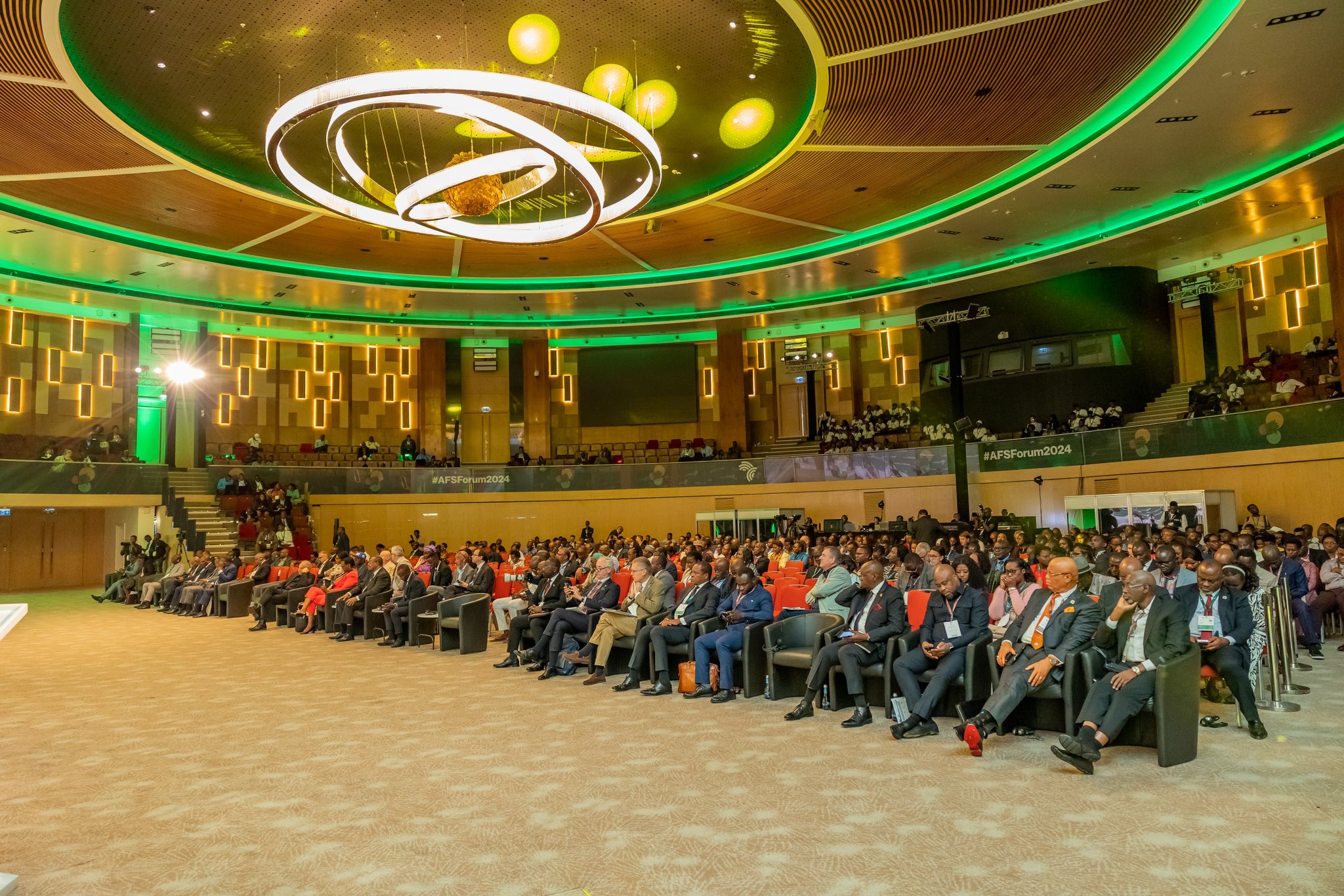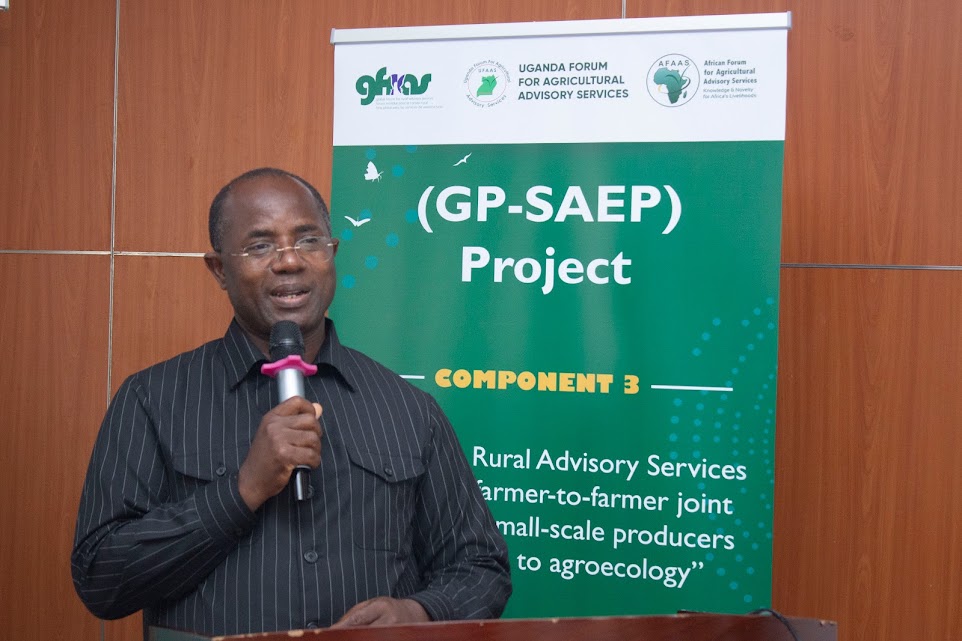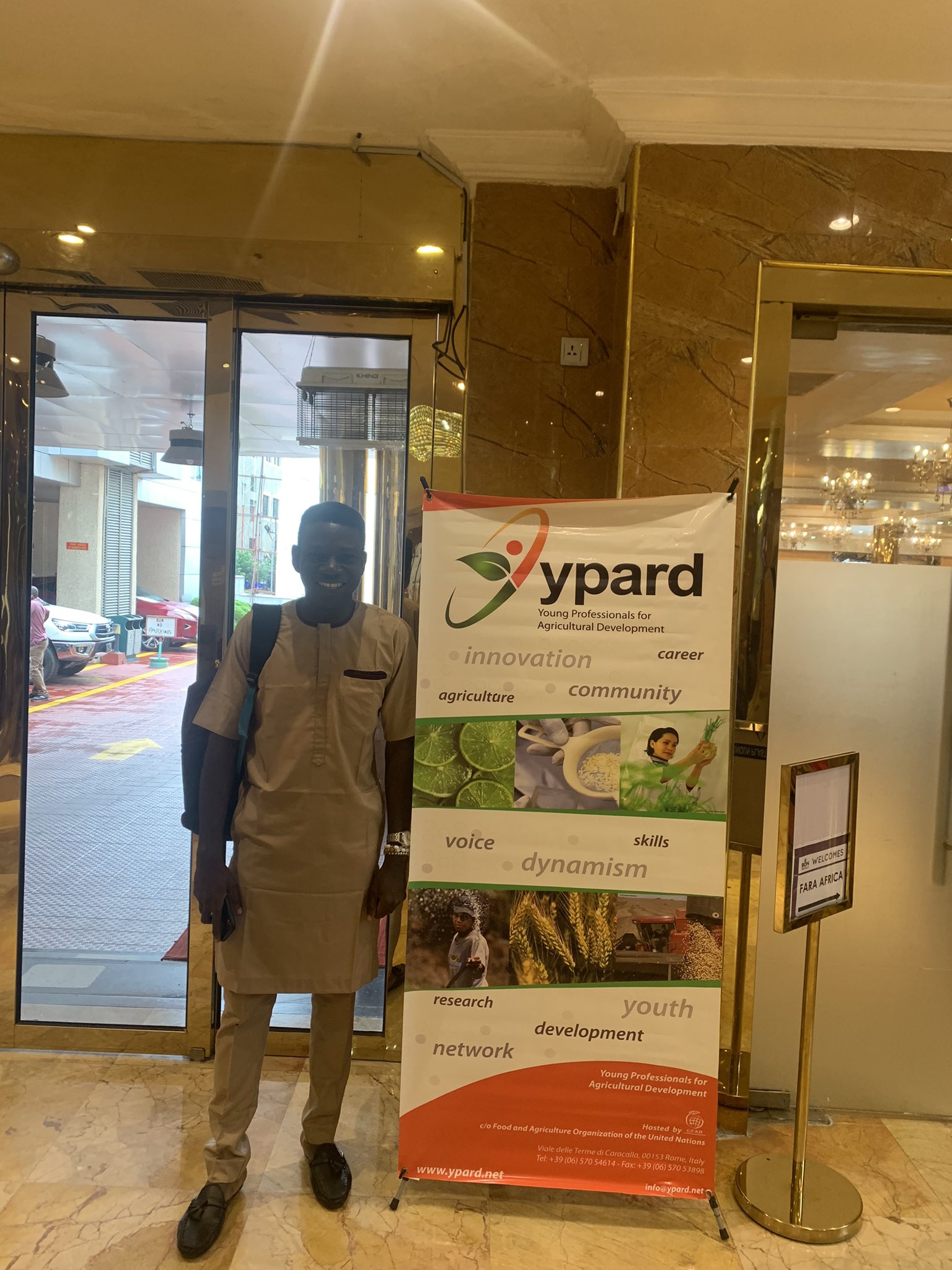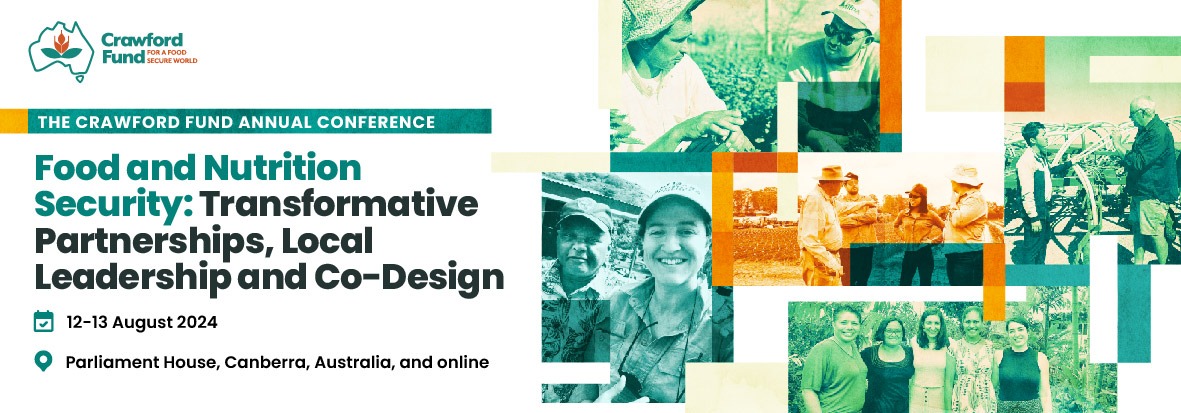1 - 7 September 2024. Stakeholders' Training of Trainers Workshop enhancing Maize, Rice, Vegetable Production and Strengthening Innovation Platforms in Ghana to strengthen the capacity of Ghanaian Stakeholders and Entrepreneurs.
2 September, 2024. @ 08:00 AM – 02:00 PM (Kigali time) Post AFSH Summit Round Table
- Implementation of the AFSH Action Plan and Soil Initiatives for Africa: Practical Next Steps
- Hosted by: The Coalition of Implementors for Fertilizers and Soil Health (APNI, FARA, IFDC, IITA), AGRA, and the Joint Development Statement Partners
DAY 1: TUESDAY, SEPTEMBER 3, 2024 THEME: ACCOUNTABILITY, STATUS, AND POLICY IMPLICATIONS
- The Africa Agriculture Status Report (AASR)
- Digitalization Roadmap on Food Systems
- Panel Discussion 1: Coordinating Digital Agricultural Initiatives and Investments
- Panel Discussion 2: Building and Implementing Digital Agricultural Solutions & Public Infrastructure
- Farmers’ Forum
- Panel Discussion 1: Climate Finance
- Panel Discussion 2: Best Practices from Africa
- PRIVATE SECTOR PLENARY: Food Systems
- Panel Discussion: De-risking Systems
- Agri-innovation & Digitalization: Investments to Scale up Food Systems Transformation
- Digital Solutions for Production, Processing, E-marketing, and Food Waste Keynote
- Panel Session: Innovative Business Models to Successfully Drive Mechanization in Africa
- The focus of this Congress "Agroecologies of the World, United to face the global crises" is the sharing of agroecological experiences and collective responses to challenge the dominance of large markets and agribusiness.
- With the vision that agroecology is a collective endeavor and that its leading role must be given back to people and communities, the Congress involves actors from the social, agricultural, technical, scientific and academic sectors, as well as politicians and social movements.
3 September 2024. 02:00 CEST Agroecology, Organic, Regenerative, Nature-based A conversation on food systems sustainability framings
- Sustainable”, “organic”, “agroecological”, “nature-based”, “regenerative” are increasingly being discussed in the context of food systems.
- What are the differences and synergies between these concepts and frameworks, and how can they contribute to transforming our food systems?
- Register here and join the discussion at our upcoming webinar "Agroecology, Organic, Regenerative, Nature-based: a conversation on food systems sustainability framings"
5 September 2024 @ 11:00 am CEST, 0900 AM GMT/UTC. The sound and vision of organic farming for rural audiences
- The webinar will focus on how media houses (radio, television, newspaper, web media) can effectively use and benefit from Access Agriculture videos to support agroecology, climate change, and agri entrepreneurship learning.
05 September 2024 @ 14:00 - 15:00. Unlocking Africa-EU Research Collaboration
8 to 12 of September 2024. Rimini, Italy. 22nd IUFoST World Congress 2024 of Food Science and Technology.
9 September 2024. Digitalization in the context of Climate Smart Agriculture (CSA)
- the Digital Agri Hub and SmartAgriHubs (both WUR-run initiatives) are going to host an eCon on the subject starting on Monday 9th September.
- The email-based debate will take place on this dGroup. For those who are new to the platform here is some guidance on how to engage and actively contribute to the exchanges. You may want to invite interested friends and colleagues to join the debate via this link. More information on the eConversation will follow.
- In anticipation of this, the Wageningen University and Research (WUR) partnered with the Rwanda Ministry of Agriculture and Animal Resources (MINAGRI), the EU Delegation to Rwanda, the EU-Support to Agriculture and Climate Action (SACA), AGRA, Rwanda Green Fund (FONERWA), IFC and CGIAR – The Alliance of Bioversity International and CIAT, in organizing a CSA-focused side event on Monday 2nd September at the Africa Food Systems Forum's 2024 Summit in Kigali, Rwanda. Should you attend the Summit, you may join the event (Climate Smart Agriculture: Scaling Pathway) in room MH4 at Kigali Conference Centre, from 8:00 to 9:30 a.m. Since it happens early in the morning, coffee, tea and snacks are going to be served before the start of the presentations (thanks to EU-SACA).
- The International Centre of Insect Physiology and Ecology (icipe), in collaboration with Agropolis Fondation (AF), Gearbox Pan African Network (GB), and Université d’Abomey-Calavi (UAC), will host the Annual Implementers’ Forum (AIF) 2024 for the Accelerating Inclusive Green Growth through Agri-based Digital Innovation in West Africa (AGriDI) project in Abuja, Nigeria.
- Funded by the European Commission through the R&I Programme implemented by the Organisation of African, Caribbean and Pacific States (OACPS), AGriDI is a 4-year initiative aimed at creating an enabling environment for agri-based digital innovations in West Africa. The project is designed to increase the uptake of digital technologies by farmers’ cooperatives and SMEs, strengthen collaboration between research communities, industry, and policy actors, and enhance policymaking to support the scaling of agribusiness digital innovations.
- Session 1: Presentations on the characteristics of traditional knowledge and its application., Session 2: Panel discussion addressing key questions, such as: What support do family farmers need to effectively use traditional knowledge and practices? Can traditional knowledge be strengthened by integrating innovative practices and modern technologies? If so, how?
- Panelists from: Bangladesh: Floating Garden Agricultural Practices, Brazil: Traditional Agricultural System in the Southern Espinhaço Range, Minas Gerais Japan: Nishi-Awa Steep Slope Land Agriculture System Italy: Olive Groves of the Slopes between Assisi and Spoleto, Morrocco: Argan-based agro-sylvo-pastoral system within the area of Ait Souab - Ait Mansour, Philippines: Ifugao Rice Terraces, Spain: Malaga Raisin Production System in La Axarquía.
- FAO units participating: Agroecology, Indigenous Peoples, Mountain Partnership, Innovation and Nutrition.
10 September 2024. 3:30 – 5:30 pm (Europe/Amsterdam) Agronomy and Policy Solutions for Effective Implementation of the African Fertilizer and Soil Health Action Plan
- Co-organized by IFPRI, CGIAR, Germany’s Federal Ministry for Economic Cooperation and Development (BMZ), and Africa Network of Agricultural Policy Research Institutes (ANAPRI)
10 September 10, 2024, 1:30 – 2:30 pm (CEST) Navigating the Trade Landscape: A Latin American Perspective Building on the WTO 13th Ministerial Conference
11-13 September TROPENTAG
- The call for papers and preliminary conference information is available at: https://www.tropentag.de
- For detailed information (including workshops and photo competition) please consult the call text at: https://www.tropentag.de/conference/call_tt24.pdf
- submit high quality abstracts of original research (250-350 words, English language) via the online form at: https://www.tropentag.de/submission/index.php (available from 25 March onwards). The deadline for abstract submission is May 3, 2024.
10-27 September 2024. Science Summit during the United Nations General Assembly (UNGA79)
12 September 2024. 14:00 Central European Summer time/ Central African time (UTC+2) Understanding the governance challenges created by 'generative biology' – integration of AI with synthetic biology. / Comprendre les défis de gouvernance créés par la « biologie générative » — Intégration de l’intelligence artificielle (IA) à la biologie de synthèse
- The United Nations Convention on Biological Diversity (CBD) has for 30 years governed new developments in biotechnology, in the frame of precaution and justice, and has also recently established a process of technology horizon scanning, assessment, and monitoring of new developments.
- Now, there is an industrial attempt to converge next-generation genetic engineering tools (synthetic biology) with generative AI (of the sort used by ChatGPT) in a new "generative biology" industry.
- Understanding the EU regulation on Plant Productive Materials(PRMs)—what has changed with the amendments, what this means for farmers and the transition process of the regulation
- Lessons learned from the new EU Regulation on organic exports, its transition, and what it means for farmers in Africa.
- NWO organises two Q&A sessions for consortia working on their pre-proposal for the NL-CGIAR call ‘The Water- Food nexus in rainfed agri-food systems in Sub-Saharan Africa: socio-economics and governance’.
- During these one-hour sessions, consortia have the opportunity to ask questions about the Call for Proposals and the application process.
16 -19 September 2024. 13th African Crop Science Society (ACSS) conference.
- hosted by the Eduardo Mondlane University (EMU) in Maputo, Mozambique,
- under the theme, ‘Crop research and innovation for agricultural transformation, resilience and inclusion’, the Maputo meeting will also provide a platform for sharing and discussing research results that bring solutions towards enhancing agricultural development in Africa.
17 September 2024, Nairobi, Kenya, and online. GLF | GLF Africa 2024
17 September 202403:30 PM CEST. BIFAD Public Meeting: Demand-Side Interventions and Approaches for Healthy Diets
17 September 2024, Revisiting Farmer-Centered/Participatory Approaches
- PROLINNOVA webinar: 2:00 PM - 5:00 PM Philippines time / 9:00AM - 12:00 NOON Kenya time
- Meeting ID: 850 1615 2015 + Passcode: pro1in
18 September (13.00 CEST) INOFO will hold the webinar "PGS - Insights for Empowerment of Small Scale Organic and Agroecology Farmers". - Register here
18 September (15:00 CEST) CGIAR will hold the webinar “Advancing Agrobiodiversity: Metrics, Innovations, and Perspectives for Sustainable Agri-Food Systems”. Register here.
19 September (15:00 CEST) online launch of the report “Food from somewhere: building food security and resilience through territorial markets.” by IPES- Food will. Register here.
- webinar to explore the fundamentals of Living Income and how you can integrate it into your organisations strategy
22–23 September 2024, New York, USA. UN | Summit of the Future
23-24 September 2024. Bangkok, Thailand. The 11th International Conference on Agriculture 2024.
23–25 September 2024. Global Conference on Animal Health Innovation, Reference Centres and Vaccines
25-27 September 2024 in Timisoara, Romania. LIVING LABS FRONTIERS. Driving systemic change through Soci(et)al Engagement, for real impact
- 26/09 11.00 - 12.30 COLLABORATIVE PATHWAYS: ENHANCING LOCAL ECOSYSTEMS THROUGH LIVING LABS IN AFRICA
- 26/09 14.00 - 15.30 DEPLOYMENT OF LIVING LAB APPROACHES IN AFRICA FOR SUSTAINABLE AGRICULTURE The workshop, titled "Deployment of Living Labs Approaches in Africa for Sustainable Agriculture," will delve into the potential and unique challenges of applying the Living Labs methodology in developing nations and especially in vulnerable communities in Africa.
26 September 2024. Innovative systems for sustainable technology development, and uptake or adoption of Sustainable Agricultural Mechanization in Africa
- Lead by FARA and contributions by China Agricultural University (Li Hongwen), Murdoch University Bangladesh (Enamul Haque); CORAF, and the African Forum for Agricultural Advisory Services (AFAAS).
- The Webinars and Discussion Forums are being organized by the interim F-SAMA steering committee,comprised of AUC, FAO &ACT Network: For more information, contact: • F-SAMA - AfricaMechanize Secretariat; Email: info@africamechanize.org
26 septembre 2024. 15:30 - 17:00 CET/16:30 – 18:00 EAT. Favoriser les partenariats innovants pour renforcer les services de vulgarisation et de conseil (SAE) pluralistes dans les systèmes agroalimentaires: Cas de l'Afrique
26-30 September 2024. Terra Madre/Salone del Gusto gathering held in Torino, Italy
- Organized by Slow Food, the Piedmont region and the city of Torino, Terra Madre is the largest international gathering dedicated to food politics, agroecology and the environment.
- This global gathering will attract more than 3,000 Slow Food delegates from over 160 countries and another 300,000 attendees who will gather around the theme Our Place in Nature
- Food Trails is a four-year EU-funded Horizon 2020 project, bringing together a consortium of 19 European partners, including 11 cities, 3 universities and 5 organisations.
“Agroecology Day for All” in Lausanne on 5 October 2024
- Organised by the African Nutrition Society and Ghana Academy of Nutrition and Dietetics
- Submission of abstracts: 1st March – 31st May, 2024
14 to 18 October 2024 The third edition of the FAO Science and Innovation Forum (SIF 2024)
- The technical sessions at the Forum will be organized around three critical themes: Biotechnologies: Exploring the latest advancements and applications in biotechnology to enhance agricultural productivity, resilience, and sustainability
- Community-Driven Innovations: Highlighting grassroots innovations and community-led initiatives that drive local and regional agrifood systems transformation.
- Digital Agriculture: Examining the role of digital technologies, such as precision farming, Internet of Things, and Artificial Intelligence, in revolutionizing agricultural practices and improving supply chain efficiencies.
- Organized around three pillars - Global Youth Action, Science and Innovation and Hand-in-Hand Investment - the 2024 flagship event leverages the power of intergenerational collaboration, as well as partnerships and action across policy, science, innovation, education, culture and investment.
- This year, the event will also host the 2024 edition of the annual World Food Day and the High-Level Rome Water Dialogue on WASAG - The Global Framework on Water Scarcity in Agriculture, as well as the Global Family Farming Forum, ensuring even more inclusivity, dialogues and solutions for the present and future of our agrifood systems.
Register here to join in-person (Rome). Web streaming will also be available.
14 -16 October 2024. Addis Ababa African Youth Summit on Food Systems & Agroecology 2024
- This summit is aimed at showcasing diverse solutions from African Youth to demonstrate practical ways of achieving improved livelihoods and sustainable food systems in a climate crisis.
- Thousand African Youth Summit on Food Systems and Agroecology 2024 is explicitly designed to be a “Summit of Solutions”.
- This emphasis on solutions is driven by the understanding that mere discussions and identification of challenges are insufficient to drive meaningful change.
- The summit aims to go beyond rhetoric by actively seeking innovative ideas, practical recommendations, and actionable plans to address the complex issues facing African food systems.
- virtual event : the Summit aims to bring together African and EU researchers, academics, government officials, experts, and farmers engaged in advancing agroecological practices in Africa. The PrAEctiCe Agroecology Summit offers a chance to explore how agroecology can help to feed Africa.
- It will cover agroecological aquaculture systems’ current, emerging, and future benefits. It will also discuss the existing and developing frameworks for complying with agroecological practices to promote increased involvement between stakeholders and smallholder aquaculture producers in Africa.
- Discover practical applications of remote sensing, digital data, and GIS technologies to improve the efficiency, selection, and monitoring of sustainable smallholder aquaculture operations. The event will also discuss potential obstacles or issues that may impact the integration of aquaculture with agriculture.
21-26 October 2024. CORAF week
21 October–1 November, TBA, Colombia. UN | 2024 United Nations Biodiversity Conference (COP16)
23rd-24th October: Pre-register for the Global Bioeconomy Summit (GBS), a global & inclusive Summit bringing together bioeconomy experts to discuss sustainable solutions to global challenges. Register here.
23 -24 October 2024. Global Bioeconomy Summit (GBS)
23 -25 October 2024. San Lorenzo - Paraguay The 10th Latin American Congress on Agroecology
- This congress will be a time to update on the main debates that are being held in the region for the advancement of Agroecology in the territories.24 October 2024. The role of smallholder farmers in agricultural development and food security in Africa for Sustainable Agricultural Mechanization in Africa
- Introductory remarks by PAFO. Panel: ROPPA/EAFF; PASAE; University of Nairobi; CSIR-CRI Ghana; and Director of Mechanization, Nigeria.
- The Webinars and Discussion Forums are being organized by the interim F-SAMA steering committee,comprised of AUC, FAO &ACT Network: For more information, contact: • F-SAMA - AfricaMechanize Secretariat; Email: info@africamechanize.org
November 2024 (Agro)pastoralism in Africa: Current Dynamics and Perspectives, in preparation for the International Year of Rangelands and Pastoralists (IYRP 2026)
4–8 November 2024. Lisbon, TROPICAL SUMMIT - Foreseeing Answers to Global Challenges
Tropical Summit: A unique multi-actor forum to achieve the 2030 Agenda through triangular cooperation.
11–22 November 2024, Baku, Azerbaijan UN | 2024 United Nations Climate Change Conference (COP29)
20 November 2024. 1:30 to 5:30 pm. Soil quality – Towards an indicator system for public policy - Restitution conference
26-28 November 2024 in Dakar, Senegal. ANAPRI Stakeholders Conference scheduled
25-28 November 2024. Kigali, Rwanda. SUN Movement Global Gathering 2024
- The SUN Movement Global Gathering is the Movement’s flagship event and one of the largest international gatherings within the nutrition community.
26 to 27 November 2024 SFN+ Hybrid Conference: Innovations for sustainable and resilient agri-food systems
- This hybrid conference will provide an opportunity to explore the latest innovations in the agri-food systems within the UK and beyond (Africa and Asia); showcase the success of its funded research projects, present the latest knowledge exchange initiatives of its expert working groups and provide networking opportunities for leading food researchers and industry experts.
28 November 2024. Sustainable Agricultural Mechanization in Africa
- Annual Summary Paper to be prepared by AfricaMechanize Secretariat.
- Presented by ACT iSAMAP Chair.
- The Webinars and Discussion Forums are being organized by the interim F-SAMA steering committee,comprised of AUC, FAO &ACT Network: For more information, contact: • F-SAMA - AfricaMechanize Secretariat; Email: info@africamechanize.org
30 November - 6 December. Pre-Conferences, Tours, Organic World Congress, and the General Assembly of IFOAM – Organics International
2–13 December 2024, Riyadh, Saudi Arabia UN | UNCCD COP16
8 - 11 December 2024. The AAS 15th General Assembly & Scientific Conference, themed "Empowering and Advancing Africa’s Scientific Enterprise,"
09 – 12 December 2024. AAS Scientific Conference and General Assembly
25 February - 1 March 2025. Corvallis, Oregon. Organic Seed Alliance conference
- to be held Hydrid: In-person and virtual.
- Call for 2025 Conference proposals is open until July 19 and is available at this link
9 and 13 June 2025. African Conference on Agricultural Technologies (ACAT) Kigali, Rwanda,















